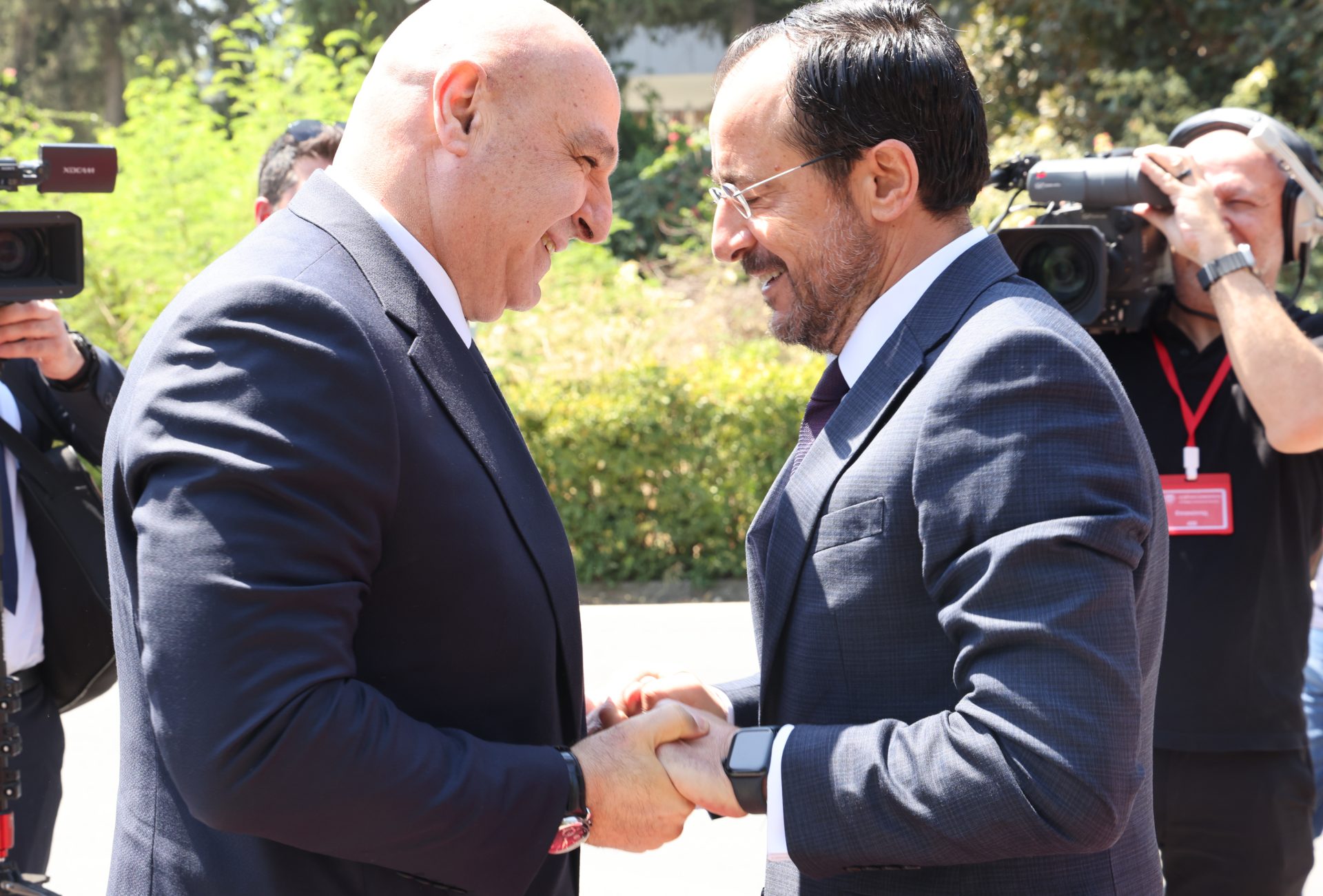By Euripides L Evriviades
The recent visit of Lebanese President Joseph Aoun to Cyprus was not merely a diplomatic courtesy call. It was laden with history, symbolism and strategic meaning, offering both nations an opportunity to recalibrate their regional roles in an increasingly volatile Eastern Mediterranean.
For millennia, Cyprus and Lebanon have been neighbours across a narrow sea lane. From Phoenician traders who settled Kition (modern Larnaca) to Byzantine, Ottoman and colonial legacies shaping their trajectories, the two peoples share cultural and historical kinship. Yet their modern diplomatic ties, formalised in 1960, have often operated quietly in the shadows of larger regional players.
This visit broke that pattern. Welcomed with full honours, President Aoun held private talks and extended discussions with President Nikos Christodoulides covering security, migration, trade, energy, health and regional stability. Christodoulides described the relationship as “excellent”, reaffirming Cyprus’ steadfast support for Lebanon’s sovereignty amid its domestic crises. In turn, Aoun called Cyprus a “steadfast ally”, underlining Lebanon’s reliance on its neighbour and expressing gratitude for Cyprus’ support – from hosting wartime evacuations to backing Lebanon within EU fora.
No agreements or memoranda were signed, yet this absence does not imply a lack of substance. The two leaders laid groundwork for what could become a strategic partnership rooted in shared vulnerabilities and mutual aspirations. Notably, Christodoulides invited Aoun to participate in the April 2026 informal EU summit during Cyprus’s EU Council presidency – a significant gesture that could elevate Lebanon’s profile within European policy spheres.
The timing of the visit is critical. Lebanon is navigating perhaps its deepest domestic crisis since the end of its civil war, compounded by the risk of regional spillover from the Israel–Hezbollah confrontation and the recent 12-day war between Israel and Iran. For Cyprus, a frontline EU state, Lebanon’s stability is not an abstract concern but an immediate geopolitical and security priority. Refugee flows, regional conflict escalation, terrorism and maritime security are all interlinked with Cyprus’ national interests.
President Aoun’s remarks emphasised rebuilding Lebanon’s energy and health sectors, particularly for southern regions, and attracting Cypriot investment. Lebanese outlets underscored his vision of the two nations as “almost twins for a thousand years… united as pathways for empires, settled together as harbours of peace and freedom”. This narrative resonates deeply in a region where historical memory shapes strategic identity.
Cyprus also occupies a unique position. As an EU member with regional familiarity and credibility among its neighbours, it seeks to foster structured dialogue and closer cooperation between the EU and Lebanon. Nicosia has demonstrated this role before, notably in supporting EU humanitarian corridors during the 2006 Lebanon war, and again in facilitating evacuations during regional crises. Its upcoming EU presidency offers another opportunity to engage proactively with regional partners and project influence beyond its size.
The visit’s significance lies in five areas:
Political engagement: Cyprus continues to support deeper EU-Lebanon cooperation at a time when Beirut’s global relevance risks erosion due to protracted instability.
Security cooperation: Both countries face threats from regional conflicts, including potential expansion of the Israel-Hezbollah confrontation, instability in Syria and the ongoing strategic recomposition of the Middle East. Defence coordination and intelligence-sharing remain quiet yet vital.
Energy and maritime ambitions: With overlapping Exclusive Economic Zones and natural gas prospects, coordinated exploration and legal demarcation could unlock economic gains while strengthening sovereign claims.
Migration management: Cyprus bears disproportionate EU migration pressures, while Lebanon hosts among the highest per capita refugee populations globally. Joint frameworks on humanitarian management, returns and social integration would benefit both.
Human development and solidarity: Aoun’s emphasis on energy and health sector collaboration, coupled with his visit to the ceasefire line in Nicosia, underscored a shared history of division and a joint imperative for resilience and dignity.
It is also worth noting that Christodoulides was the first international leader to visit Aoun earlier this year in Beirut, signalling a deliberate policy of intensifying ties. This policy transcends neighbourly goodwill; it is an astute geopolitical strategy to cement Cyprus’ role as a regional node of stability and influence.
Looking ahead, expectations should remain measured. Lebanon’s fragmented political landscape, severe economic distress and fragile security situation limit the immediacy of concrete bilateral projects. However, diplomatic capital is built through consistency and trust, not episodic declarations. This visit sets the stage for potential sectoral agreements – particularly in energy, health, defence, migration and cultural or educational exchanges.
In an Eastern Mediterranean marked by entropy, transactional power politics and strategic flux, militarily weak but focused states like Cyprus and Lebanon – bound by history and geographical proximity – are reminded that with limited hard power, strategic diplomacy remains their greatest asset: enabling them to craft meaningful alignments that serve national interests and transform solidarity into durable partnership for regional stability.
Euripides L Evriviades is a former ambassador to the US and high commissioner to the UK. He is now a senior fellow at the Cyprus Centre for European and International Affairs, University of Nicosia






Click here to change your cookie preferences